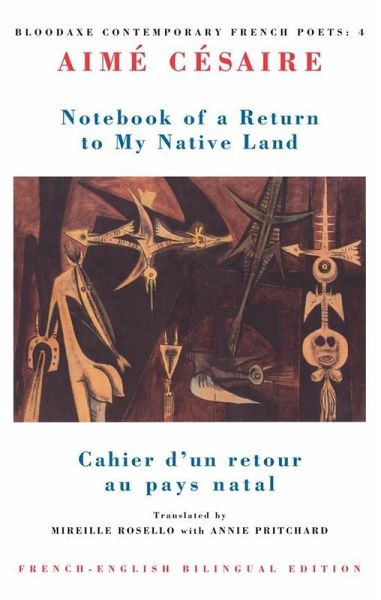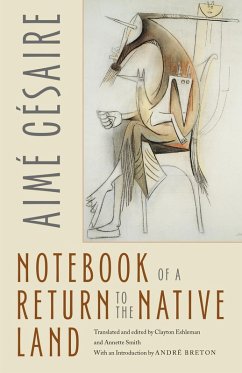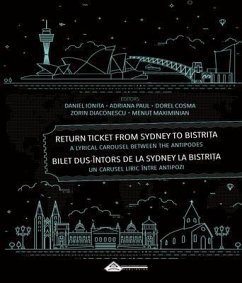
Notebook of a Return to My Native Land (eBook, ePUB)
Cahier d'un retour au pays natal
Redaktion: Pritchard, Annie / Übersetzer: Rosello, Mireille

PAYBACK Punkte
3 °P sammeln!
André Breton called Césaire's Cahier 'nothing less than the greatest lyrical monument of this time'. It is a seminal text in Surrealist, French and Black literatures - published in full in English for the first time in Bloodaxe's bilingual Contemporary French Poets series. Aimé Césaire (1913-2008) was born in in Basse-Pointe, a village on the north coast of Martinique, a former French colony in the Caribbean (now an overseas département of France). His book Discourse on Colonialism (1950) is a classic of French political literature. Notebook of a Return to My Native Land (1956) is the fou...
André Breton called Césaire's Cahier 'nothing less than the greatest lyrical monument of this time'. It is a seminal text in Surrealist, French and Black literatures - published in full in English for the first time in Bloodaxe's bilingual Contemporary French Poets series. Aimé Césaire (1913-2008) was born in in Basse-Pointe, a village on the north coast of Martinique, a former French colony in the Caribbean (now an overseas département of France). His book Discourse on Colonialism (1950) is a classic of French political literature. Notebook of a Return to My Native Land (1956) is the foundation stone of francophone Black literature: it is here that the word Négritude appeared for the first time. Négritude has come to mean the cultural, philosophical and political movement co-founded in Paris in the 1930s by three Black students from French colonies: the poets Léon-Gontran Damas from French Guiana; Léopold Senghor, later President of Senegal; and Aimé Césaire, who became a deputy in the French National Assembly for the Revolutionary Party of Martinique and was repeatedly elected Mayor of Fort-de-France. As a poet, Césaire believed in the revolutionary power of language, and in the Notebook he combined high literary French with Martinican colloquialisms, and archaic turns of phrase with dazzling new coinages. The result is a challenging and deeply moving poem on the theme of the future of the negro race which presents and enacts the poignant search for a Martinican identity. The Notebook opposes the ideology of colonialism by inventing a language that refuses assimilation to a dominant cultural norm, a language that teaches resistance and liberation. French-English dual language edition. Bloodaxe Contemporary French Poets: 4.
Dieser Download kann aus rechtlichen Gründen nur mit Rechnungsadresse in A, D ausgeliefert werden.













